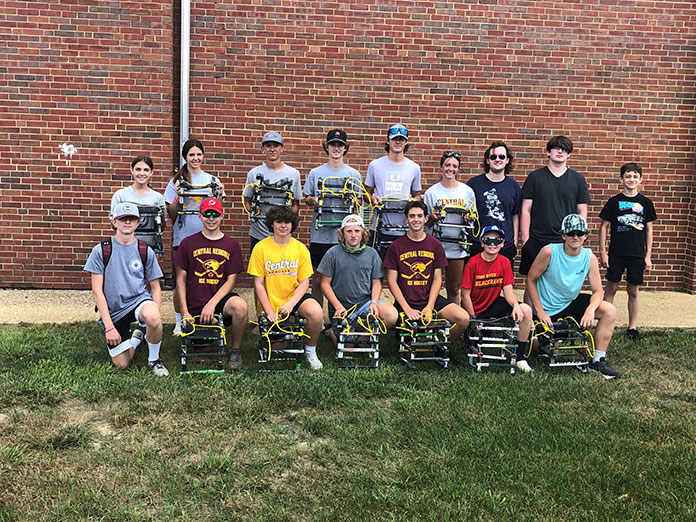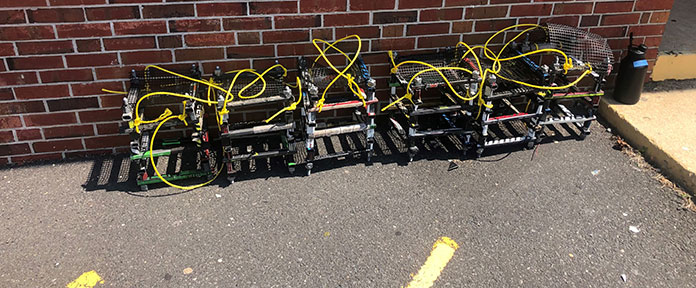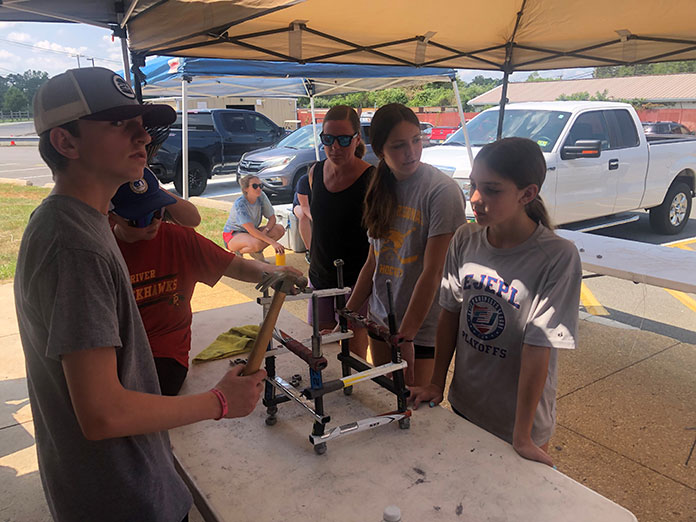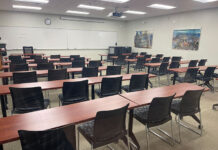
BERKELEY – Hockey players break a lot of sticks. The repeated impact wears them down over time until they are useless.
Well, not useless per se…
The Central Regional team has been using their broken sticks to build artificial reefs for local waters for years now. The pieces are fastened together to form something that looks like a cross between a crab trap and a chest with the drawers removed. They are then installed in the water for oysters to latch on.
Oysters naturally clean waterways by feeding on impurities. Making the water healthier allows other species to thrive, such as fish and crabs.
Coach Joe Pelliccio said the idea came from another shore area. Bob Wasno coaches hockey at Florida Gulf Coast University. Pelliccio had to call Wasno because he had a student who was interested in attending the school. Wasno got him interested in this project and the rest is history.

They’ve partnered with such groups as the New York-New Jersey Baykeepers and Save Barnegat Bay.
“We’re officially the New Jersey chapter for this project,” he said.
According to Rink2Reef.com, the sticks are made from non-recyclable carbon composite material, held together with resin made of a lactic acid derivative. Before this program, the 3.2 million sticks created per year would all end up in a landfill. Placing them in waterways has dual environmental purposes: it keeps them out of the dump and it helps grow oysters. It’s important to note that the stick and resin are completely inert and cannot harm the environment.

Save Barnegat Bay will be installing them on the shores of Waretown. There is also an oyster garden at Long Beach Island.
Several teams in the National Hockey League are jumping on board, as well. It’s growing throughout the nation, but Central Regional beat many of the big teams to it.
“All our kids are water kids,” Pelliccio said. They’re lifeguards. They hit the beach regularly. They care about the environment and it shows.






